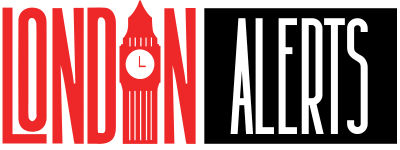
Unlock the Editor’s Digest for free
Roula Khalaf, Editor of the FT, selects her favourite stories in this weekly newsletter.
French voters trust the far-right Rassemblement National more than any other party to manage the economy and public finances despite its unfunded tax cutting and spending plans and lack of government experience.
The findings in an Ipsos poll for the Financial Times show the uphill battle facing Emmanuel Macron’s Ensemble centrist alliance ahead of elections on June 30. The alliance’s campaign strategy is centred on convincing the electorate that installing a far-right or leftwing government would wreck the economy and ultimately swingeing tax rises.
The survey, carried out on June 19-20, found that 25 per cent of respondents have most confidence in Marine Le Pen’s RN to take the correct decisions on economic issues compared with 22 per cent for the leftwing New Popular Front and just 20 per cent for Macron’s alliance.
RN ranked top on improving living standards, tackling inflation and lowering taxes. Remarkably, it also came first for reducing unemployment, a big success of Macron’s presidency when joblessness fell to a 15-year low, before ticking up last year.
Also striking, 23 per cent said they trusted RN the most to reduce the public deficit and debt. Macron’s alliance and the NPF, which has vast tax and spending plans, were level pegging at 17 per cent.
The data appears to support the message that Macron campaign staffers say they hear on the doorsteps: having tried everything else, voters are willing to give the RN a try.
“This dynamic is undoubtedly linked to the RN’s strategy of “normalisation”, but also to the disappointment caused by the left under President François Hollande and then by Macronism, and the difficulties for the left to provide a credible and coherent opposition to Macron,” said Mathieu Gallard, a pollster at Ipsos.
“In this context, the RN is perceived as a party that is, if not competent, at least no less competent than other political formations.”
The far-right fought the 2022 presidential election with policies independently costed at over €100bn a year. Jordan Bardella, RN president and its candidate for prime minister, has pared back those promises in recent days and said he would first conduct an audit of the public finances.
But the party is committed to immediately cutting value added tax on energy and fuel and reversing Macron’s increase in the pension age from 64 to 62. Those two policies alone could cost €20-30bn a year, according to analysts.
Economists warn the RN plans lack any serious revenue raising proposals.
Olivier Blanchard, former chief economist of the IMF, said the RN plans were “fiscally irresponsible. Gifts cost money. The money is not there, at least not in the programme.”
Macron’s allies are trying to present themselves as the only credible party of government and their opponents as reckless.
RN’s experience of power extends to running two small cities in the south of the country.
“Seven years of work could be screwed up by seven days of decisions . . . don’t give in to the siren calls of the RN,” Bruno Le Maire, the French finance minister, told a gathering of French business leaders last week.
The government has also taken aim at the economic credentials of the NFP, a group that includes the far-left party known as La France Insoumise, centre-left Socialists, Greens and Communists.
On Friday, the NFP outlined new spending plans costing €150bn over the three years to 2027, financed largely through hefty tax increases on the wealthy and businesses. The leftist bloc said its plans would not increase the size of the deficit.
Prime minister Gabriel Attal, who is leading the Ensemble campaign comprising three parties, said the left’s plans amounted to a “tax bludgeoning”. Blanchard said the taxes could be “nearly confiscatory in nature”.
But Macron’s government, which is offering continuity, has left itself open to attacks on its own management of the economy, having overseen a ballooning of France’s deficit to 5.5 per cent of GDP, the second highest in the eurozone. Debt stands at 110 per cent of GDP.
Inflation has also battered the government’s reputation on improving living standards, which the Ipsos polls show is the voters’ priority.
Thirty-two per cent said this was the most important factor in deciding their vote, compared with 20 per cent for the economy and public finances. Thirty per cent of voters trust the RN most on this issue, compared with 29 per cent for the NFP and just 16 per cent for Macron’s alliance.
Gallard said the findings were “really catastrophic for the presidential party, which apparently has no real strength to put forward”.
In terms of voting intentions for the first round, Ipsos put RN on 34 per cent, NFP on 27 per cent and the centrists lagging on 21 per cent, in line with other recent surveys. Recent seat projections suggest France is heading for a hung parliament with RN as the biggest party.
The survey involved 2,000 people who were registered voters aged 18 and over.
Additional reporting by Janina Conboye





